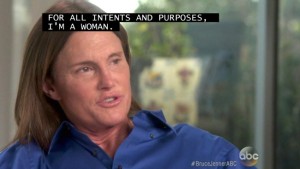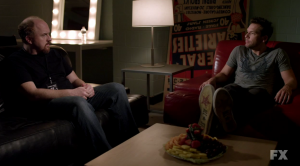I.
The other night I was out at dinner, and someone was talking about meditating. Decades ago that would indicate I live in San Francisco. Now it just means I spend lots of time with white people.
The Meditator was talking about how meditation works. The process. The benefits. The before-and-after narrative of self-discovery and -healing. One person at the table said it sounded nice, but it didn’t ever work for her. I said something similar: meditation’s insistence on not-thinking didn’t help me find what I was looking for, whereas Ignatian spirituality?which insists instead on dialogue and creative imagination?did.
“But Dave,” the Meditator said. “It’s not about not thinking.” It was about changing your relationship to your thoughts, I was told. There were similar things told to the other person. It was, for the Meditator, not as though we were speaking honestly about our lives, but that we were willful ignorants, blathering about nonsense.
All I kept thinking was this: I don’t watch that TV show, okay?
II.
Sometimes in a conversation someone will say something, or something around us will happen, and I’ll get an exciting feeling in my head. Then I’ll say, “Do you watch 30 Rock?” Or American Dad or Friends or any number of shows I’ve seen dozens of times, one of which once made a funny/wry/accurate comment that I want to reference.
Often, the person I’m with will say, “Not really.”
Every time, I feel bad. “Oh,” I say. “Never mind.” I feel bad because my exciting feeling finds no outlet.
Who’s at fault? Everyone knows: It’s never the person who doesn’t watch my TV show.
III.
I’m writing this up because I continue to be surprised and confused by the Meditator’s inability to listen to us non-meditators and trust that we’d tried it, decided against it, and found our own way. I watch plenty of other TV shows. They’re also entertaining and important to me.
I’m on Twitter a lot, and more and more these days (probably as people continue to get impassioned about presidential candidates), I feel like Twitter is a feed of people insisting you watch their TV show.
Or no, it’s more than an insistence. It’s that your life is lesser than theirs, that you yourself are lesser than they, because you don’t watch their TV show. It might be a specific kind of logical fallacy: Because this worked for me it must also work for you. It requires from the believer a certain lack of imagination. Or a certain belief in other people.
A lot of people on Twitter want me to watch the “Hillary 2016” show, and when I say that I don’t watch that TV show, this results in the onset of an argument about how I’m watching the wrong show. I’m not watching the wrong show. I know myself better than you do, and I know that “Bernie 2016” is the TV show it’s important for me to watch. I don’t recommend it to everyone, and I can’t fault you for watching your own show.
Actually, what’s happening is that people want me to watch the “This election is important and that importance is happening here online” show. But that’s a show I have no interest in watching.








